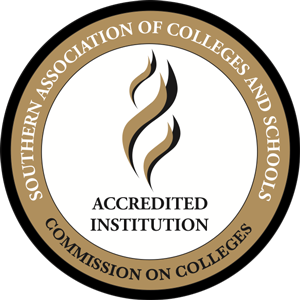TITLE III
The Title III Program is administered by the U. S. Department of Education, Institutional Development and Undergraduate Education Services and began as part of the Higher Education Act of 1965. This was an effort by the U.S. Congress to "assist in raising the academic quality of colleges that had the desire and potential to make a substantial contribution to higher education resources of our nation, but which for financial and other reasons were struggling for survival and were isolated from the main current of academic life."
The Title III Program supports the Department of Education's commitment to improve educational opportunities for minorities and the disadvantaged. Funding is focused on institutions that enroll large proportions of disadvantaged students. The Title III Program provides financial assistance to enable eligible institutions to solve problems that threaten their ability to survive, to stabilize their management and fiscal operations, and to build endowments.
An important objective of the Title III Program is to help participating institutions improve their academic programs and management and become financially independent in order to increase their self-sufficiency and strengthen their capacity to make a substantial contribution to the higher education resources of the nation.
Program Description
This program provides financial assistance to Historically Black Colleges and Universities (HBCUs) to establish or strengthen their physical plants, financial management, academic resources and endowment-building capacity.
Activities may include:
- Student services; educational equipment acquisition; facility renovation and construction; faculty and staff development;
- The establishment of a program of teacher education designed to qualify students to teach in public schools; the establishment of community outreach programs that will encourage elementary and secondary school students to develop the academic skills and the interest to pursue postsecondary education;
- The acquisition of real property in connection with the construction, renovation or addition to or financial literacy and economic literacy of students;
- Families, especially with regard to student indebtedness and student assistance programs under Title IV; and
- Services necessary for the implementation of projects or activities that are described in the grant application and that are approved, in advance, by the Department, except that not more than two percent of the grant amount may be used for this purpose.
Types of Projects
Funds may be used for the purchase, rental or lease of scientific or laboratory equipment.
Also supported are the construction, maintenance, renovation and improvement of instruction
facilities.
Funds support faculty exchanges and the development of academic instruction in disciplines
in which black Americans are underrepresented. Projects may support the purchase of
library materials as well as tutoring, counseling and student service programs.
Also supported are: funds and administrative management; joint use of facilities establishment or improvement of development offices; establishment or enhancement of programs of teacher education; establishment of outreach programs; and other activities that a grantee proposes in its application that contribute to carrying out the purposes of the program and are approved by the Secretary as part of the review and acceptance of the grant application.
Additional Information
The Strengthening Historically Black Graduate Institutions Program provides grants to the institutions listed under Eligibility to assist these institutions in establishing and strengthening their endowment funds, academic resources and student services so that they may continue to participate in fulfilling the goal of equality of educational opportunity in graduate education.
U.S. Department of Education - Title III HBGI Program Link
For more information, visit http://www2.ed.gov/programs/idueshbgi/index.html

